If your furry pal is experiencing tummy troubles, including foul-smelling diarrhea, the microscopic parasite Giardia may be to blame. Our Boca Midtowne Animal Hospital team wants your pet to live their best life, and we provide information about Giardia, as well as advice on how to safeguard your four-legged friend.
Giardia basics
Giardia duodenalis is a ubiquitous flagellated, protozoal organism that commonly parasitizes dogs, as well as other mammals. The parasite has two stages:
- Trophozoite — Trophozoites are the parasitic form that encyst in a dog’s small intestine, interfering with digestion. Trophozoites reproduce by dividing, with some becoming cysts.
- Cyst — Cysts are the infective Giardia form, and they enter the environment through an affected dog’s feces. Cysts are extremely resistant to environmental insults and can take weeks to degrade.
How dogs contract Giardia
A dog contracts Giardia by coming in contact with an infective cyst, such as by eating contaminated soil, drinking contaminated water, sniffing an infected dog, or licking contaminated fur. Once inside the dog’s intestine, a Giardia cyst transforms into a trophozoite, attaching to the intestinal wall to access nutrients.
Giardia signs in dogs
Some dogs are subclinical Giardia carriers, shedding the cysts in their feces, but exhibiting no signs. Young dogs, especially those housed in close proximity to many other dogs, and dogs who have weakened immune systems are at the greatest risk for developing signs. Giardia prevents an affected dog’s intestinal wall from absorbing fats and carbohydrates. An affected dog’s Giardia signs may include:
- Lethargy
- Decreased appetite
- Soft, watery diarrhea that is often foul-smelling and mucous-covered
- Vomiting
- Flatulence
- Weight loss
Giardia diagnosis in dogs
Giardia signs can be caused by other conditions, and definitive diagnosis can be challenging. Each of your household pets should be tested to determine whether they have contracted the infection. If we suspect any of your pets has Giardia, our Boca Midtowne Animal Hospital team will perform diagnostic tests such as:
- Detailed history — We take your dog’s detailed medical history to determine whether they could have been exposed to parasites, infectious diseases, or toxins. In addition, our team may ask if your dog has ever exhibited similar signs or has a pre-existing medical condition.
- Physical examination — Our team thoroughly examines your dog, looking for abnormalities such as dehydration, abdominal pain, and fever. Most Giardia patients don’t have a fever.
- Parvovirus test — If you have a puppy or an unvaccinated dog, we may perform a parvovirus test to rule out this dangerous infection.
- Zinc sulfate floatation — A routine fecal floatation test can fail to detect the tiny Giardia cysts, and our team may perform a special zinc sulfate floatation test. However, cysts shed intermittently, and we may need to test your dog’s fecal samples over several days to make a diagnosis.
- Snap test — In-clinic snap tests are also available to help diagnose Giardia.
Giardia treatment in dogs
Although Giardia is a severe condition, many treatment options are available for your dog. Our Boca Midtowne Animal Hospital team focuses on resolving an infected dog’s signs, and treatment methods may include:
- Combination therapy — We usually prescribe a combination therapy that includes an antiparasitic and an antibiotic.
- Fluid therapy — Intravenous (IV) fluid therapy may be necessary to correct the deficits and electrolyte imbalances diarrhea causes.
- Bathing — Giardia cysts cling to your dog’s fur, and your pooch can become reinfected when they groom themselves. Bathing your dog at the beginning and end of treatment can help prevent reinfection.
- Environmental management — You should thoroughly clean and disinfect your dog’s environment to remove Giardia cysts by laundering all your dog’s bedding and steam-cleaning upholstery. In addition, remember to use an appropriate disinfectant when cleaning hard surfaces.
- Retesting — We recommend retesting your dog after treatment to ensure the infection is cleared.
Giardia prevention in dogs
Giardia parasites are ubiquitous. However, you can help safeguard your furry pal by doing the following:
- Scheduling regular wellness checks — During a regular wellness exam, our Boca Midtowne Animal Hospital team performs a fecal check to detect concerning parasites such as Giardia.
- Removing fecal material — Dispose of your dog’s waste appropriately to prevent them from spreading parasites and other pathogens.
- Bringing water — Before an outing, pack bottled water and a portable bowl so you can offer your dog fresh, clean water when they are thirsty.
- Avoiding unknown water sources — Don’t let your dog drink from natural water sources or communal water bowls.
Giardia zoonotic potential
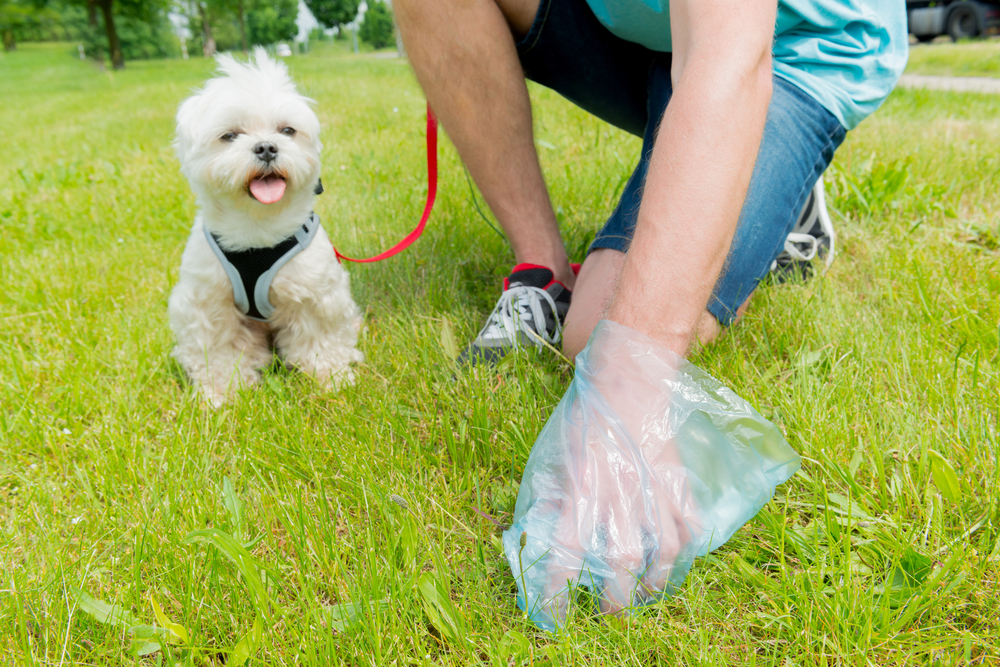
While people can contract Giardia, the strain that affects humans is different than the one that affects dogs. However, if your dog has a Giardia infection, you should maintain proper hygiene and wash your hands thoroughly after petting them or handling their feces.
Giardia may be to blame when your furry pal is experiencing tummy troubles, including foul-smelling diarrhea. If your dog has had diarrhea that persists for several days, contact our Boca Midtowne Animal Hospital team, so we can determine if Giardia is the culprit.

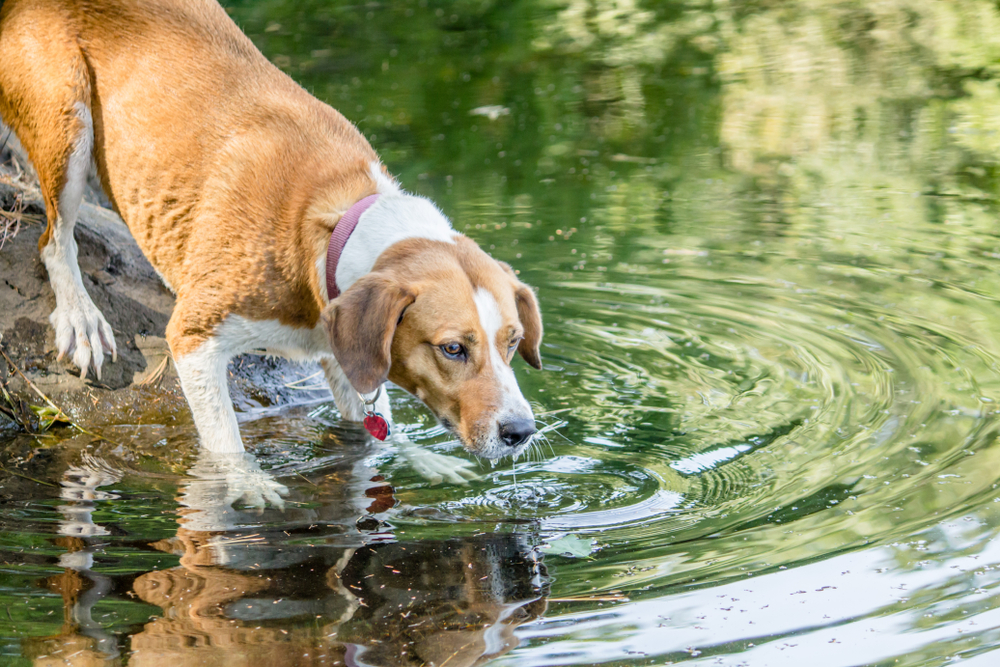
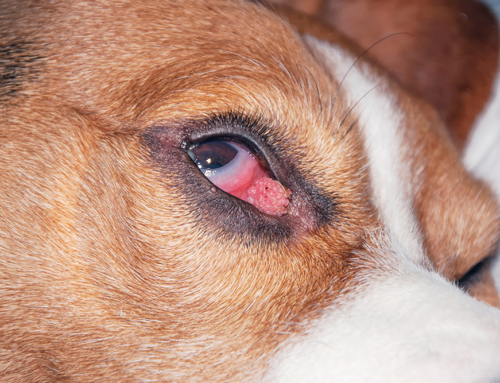
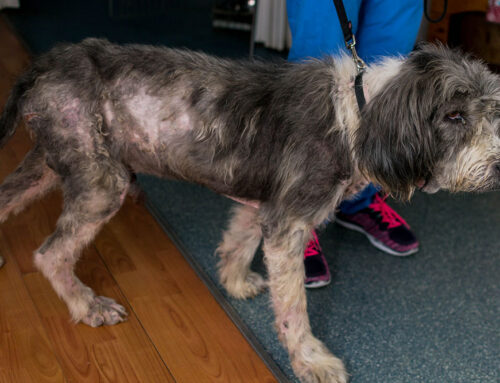
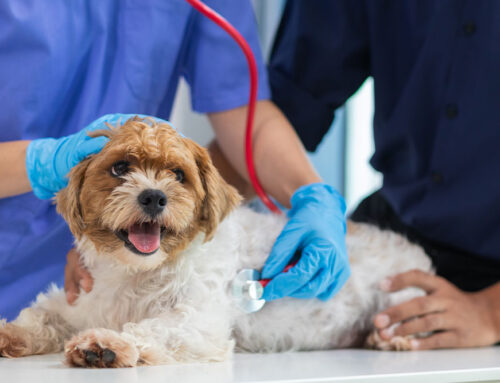


Leave A Comment